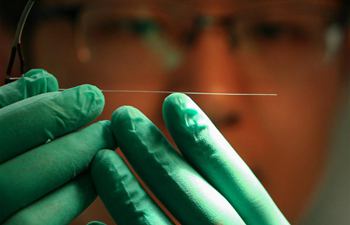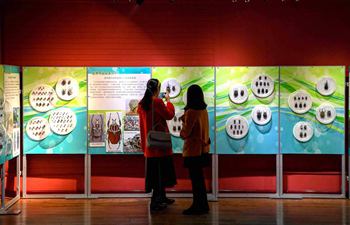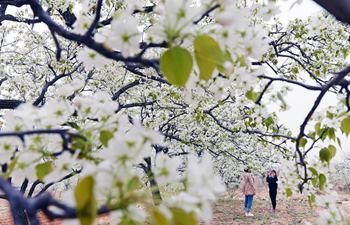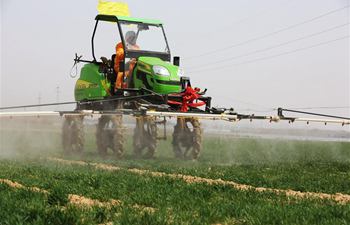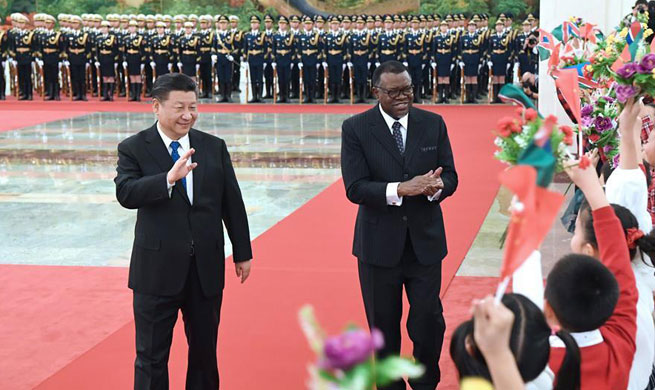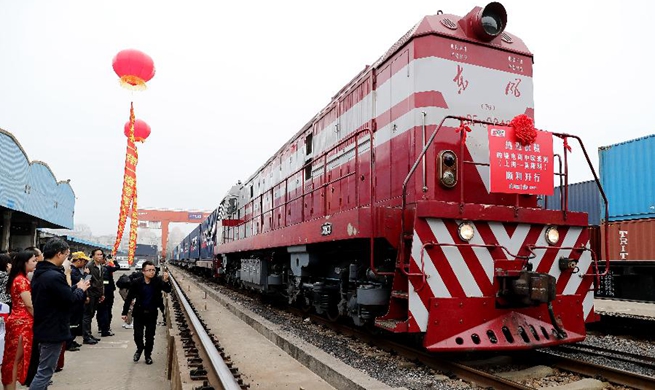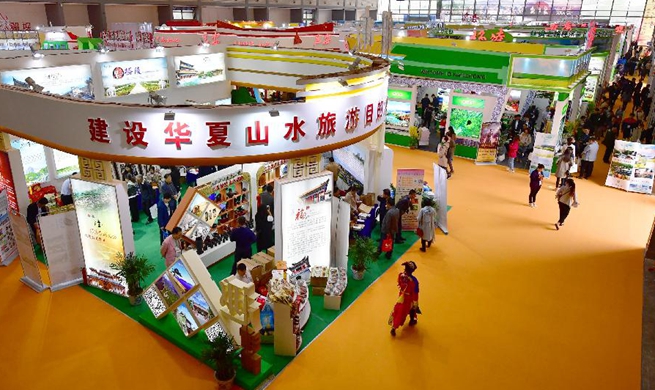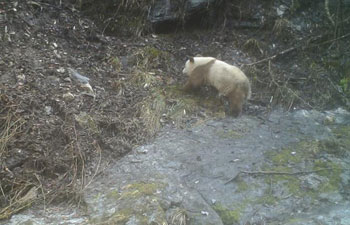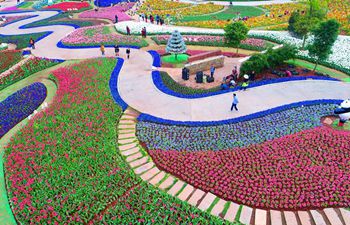NANJING, March 30 (Xinhua) -- When the large cast-iron wok is heated to nearly 300 degrees Celsius, Yan Jielong spills a basket of tea buds into it, and stirs it with his bare hands.
The process of making green tea has changed little in China in over 1,000 years. The heat evaporates the moisture from the raw tea sprouts and gives a fresh aroma to the dried leaves.
When properly applied, the process turns different varieties of tea leaves into different shapes. For example, the leaves of Biluochun curl like small snails. Its name literally means "green snail spring." The famous Longjing tea from Hangzhou in east China's Zhejiang Province has a distinctive long, flat shape.
Early spring is the season for the best green tea in China. Tea sprouts, better freshly picked in the early morning, are stir-dried as soon as possible to retain their aromatic content and pure taste.
Yan, 54, is one of China's most highly regarded tea masters and an expert in stir-drying.
"In the hot wok, my hands lightly rub and shake the leaves, while adjusting the amount of firewood to control the temperature for about 40 minutes, until the leaves are the exact shape I need," Yan explained.
Yan has run the family business for 39 years, since he graduated from junior high.
In order to master the traditional skills, he had to get himself so-called "iron palms." It took him three years to make his hands rough and tough enough.
"It was hard. Your hands must be trained to endure the heat, but retain the ability to feel the tiniest changes in the leaves," he said.
Years of baking Biluochun tea have left his nails covered with green spots and given his palms thick calluses.
"Just by using my hand, I can feel when to reduce the heat and when to stop stirring," he explained. Only the traditional way can ensure the tender, fragrant tea carries a flavor which has gone unchanged for centuries.
In 2017, Yan was invited to Japan, where he demonstrated his skill to the amazement of Japanese tea merchants.
"They thought I was performing some kind of Chinese Kungfu and wanted to learn it," Yan said.
In 2014, his son, Yan Bin, quit his job in the city's judicial bureau to learn the tea baking technique.
"At first I couldn't tolerate having my hands constantly burned, but my father told me to persist," said Yan junior, who won a third prize in a national tea baking contest in 2016. Yan's granddaughter is 7 years old and already skilled in picking tea sprouts.
"My dream is to open a Biluochun tea school and let people participate in the whole tea process from picking to drinking," he said.
All of China's best known green teas have very specific provenance and unique processing methods.
Biluochun, for example, is only produced from tea grown in an area of around 20 square kilometers on Dongting Mountain, some 100 kilometers from Shanghai. In spring, over 5,000 people are employed in sorting and drying the tea there.
Each dried tea leave of Biluochun is a tightly rolled spiral. When hot water, 75 degrees Celsius, is added, the spirals unfold and sink to the bottom of the cup. The enjoyment in watching the changes to the leaves is almost equal to the pleasure of tasting the tea.
"Every time I brew a glass of Biluochun, the bright color and mellow sweet aftertaste reassures me that all the hard work is worthwhile. The aroma is the exact scent of spring," he said.
Yan is not worried that his work could be replaced by machines, as industrial production sacrifices quality for quantity.
China is the largest producer of tea in the world, a total of 2.55 million tonnes in 2017, but many teas cannot be produced on a large scale.
Hand-made tea retails for about ten times more than machine-produced varieties. Biluochun, for example, has an output of around 100 tonnes a year. The highest quality output, around 45 tonnes made from the first spring flush, sells for over 6,000 yuan (950 U.S. dollars) per kilogram.




